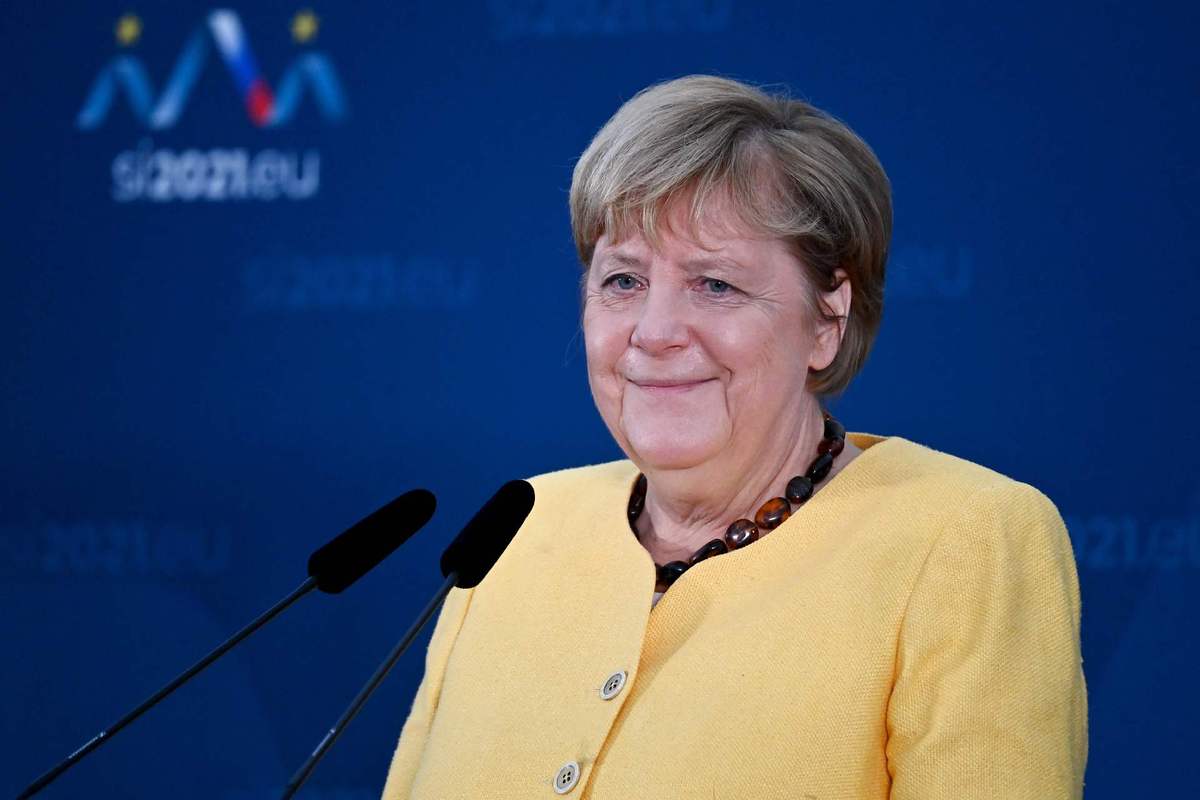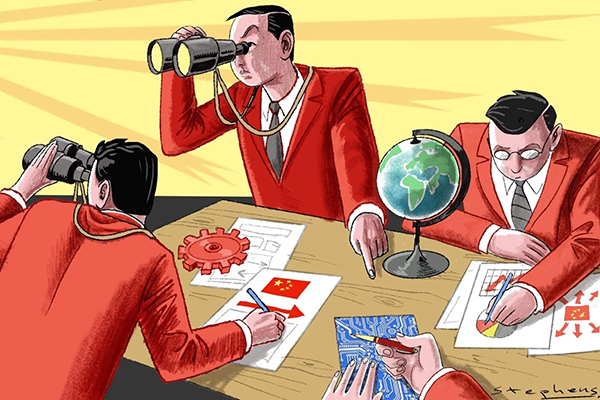【China Daily】Miao Lu: Many hope Merkel’s pragmatic vision will endure
October 12 , 2021
Germany’s Chancellor Angela Merkel delivers a speech during a press conference at the EU-Western Balkans summit in Brdo Congress Centre, near Ljubljana on October 6, 2021. [Photo/Agencies]
The impending end of Angela Merkel’s 16-year tenure as German chancellor is a chance to reflect on her contributions to Germany’s development and her galvanizing role at the center of the European Union, integral to the ongoing but arduous cause of European integration.
To most Chinese people, Angela Merkel’s public image is one of an intelligent, rational leader. More personally, she is also known as a fan of kung pao chicken (from a previous trip to China) and soccer. Early in the pandemic, many were touched by her calm-headed and persuasive speeches, in which she told people to stay at home and wear masks.
While she is an enduring and influential female leader in the global arena, Merkel has, for the Chinese public, retained an image of being approachable and authentic. Her scientific background in earning a doctorate in quantum chemistry before her political career is seen as shaping her rational and pragmatic approach, evident in her decisive action to contain the pandemic by locking down cities in Germany.
Regarding Germany’s foreign relations, Merkel is generally seen in China as decent and pragmatic, deftly using various channels to seek a stable external environment. She has delicately managed Germany’s crucial relationship with France to promote the EU’s strategic autonomy, while also proving able to build up stable German-Russian relations by keeping political and economic aspects separate.
During her 16 years in office, Merkel has helped to boost the EU’s unity on European affairs so that Europe can be unified though not homogeneous. Germany has shown its role as the anchoring force of the EU while confronting different challenges such as Brexit, the COVID-19 pandemic, climate change and EU relations with China and the United States.
Led by populism and the immigration crisis, the United Kingdom withdrew from the EU on Jan 1,2020. After Brexit, Merkel sought to ensure a friendly post-Brexit relationship. The EU-UK Trade and Cooperation Agreement, which took effect on May 1 this year, acts as a solid basis for preserving the long-standing EU-UK friendship and cooperation. The pact covers areas such as trade in goods and in services, digital trade, intellectual property and energy.
At the online 2021 Munich Security Conference Special Edition in February, which aimed at promoting openness and multilateralism, Merkel said that global challenges cannot be met without international cooperation, and that China can make more contributions to the world by helping to address these challenges.
During Merkel’s 12 visits to China, Germany has showed the goodwill to cooperate with the country. In addition, the two nations have various fields in which to work together, such as vaccination research and distribution, climate change, vocational education, senior healthcare, the automobile industry and the digital economy.
Above all, after seven years of talks and 35 rounds of negotiations, China and the EU jointly announced the completion of negotiations on the China-EU Comprehensive Agreement on Investment at the end of 2020, an achievement largely attributed to Merkel’s relentless efforts. While ratification has been suspended due to political issues, it remains the right direction for economic cooperation in the future.
In an era full of uncertainty, the agreement covers four aspects: market access commitments, fair competition rules, sustainable development and dispute settlement. High-level market access commitments will bring more investment opportunities for enterprises on both sides, while fair competition rules will provide a better environment for bilateral investment.
Some wonder if Germany’s influence will wane with the end of the Merkel era. The country has the potential to play a bigger, not a smaller, role in world affairs. By continuing the pragmatism that has been a hallmark of Merkel’s foreign policy, and by diversifying its foreign relations, Germany is well-placed to step into a more prominent international mediation role of the type it has proved so adept at regionally.
Merkel leaves a rich legacy for Germany, Europe and the world. As one of the greatest leaders of the 21st century, she has helped to shape the relatively stable foreign relations among China, the US and the EU.
But what comes next? Given the continued challenges of the pandemic, rising geopolitical tensions in the Asia-Pacific region and turbulence in Afghanistan and other countries, lots of worries and concerns will linger in the post-Merkel Germany and the EU. Is there another leader who can step into Merkel’s shoes and forge a new stable government in Germany, and help cultivate an integrated European community? These are indeed important questions, given the global challenges ahead.
“Multilateralism is the basis of everything we do,” Merkel pointed out during the 2021 Munich Security Conference Special Edition. For China, and no doubt many other countries around the world, the hope is that this vision will endure after Merkel leaves the political scene.
Topical News See more






